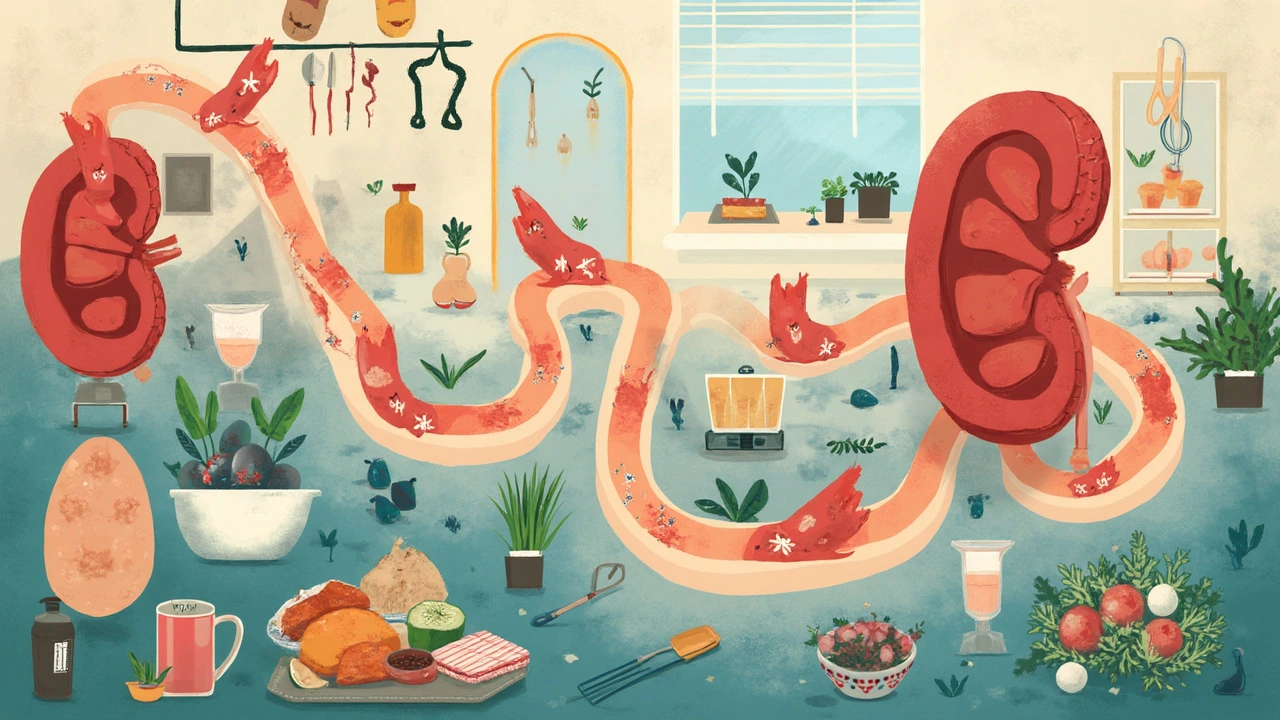Salmonella: What It Is, How It Hits You, and How to Stay Safe
Salmonella is a type of bacteria that can cause food poisoning. You usually hear about it when someone gets sick after eating raw eggs, undercooked chicken, or contaminated produce. The good news is that most people get better on their own, but knowing the signs and how to avoid it can save you a lot of hassle.
Symptoms usually start 6 to 72 hours after you’ve eaten the bad food. You might feel a gnawing stomach ache, nausea, vomiting, diarrhea, and sometimes a fever. The symptoms last a few days, but they can be worse for kids, the elderly, or anyone with a weak immune system. If you notice severe dehydration, blood in the stool, or a fever above 102°F (38.9°C), it’s time to see a doctor.
Common Ways Salmonella Spreads
Most salmonella cases come from food that wasn’t cooked or stored properly. Here are the usual suspects:
- Raw or undercooked eggs: Think homemade mayo, hollandaise, or runny yolks.
- Poultry: Chicken, turkey, and even duck can carry the bug if the meat isn’t cooked to at least 165°F (74°C).
- Unpasteurized dairy: Milk, cheese, or yogurt that hasn’t been heat‑treated.
- Fresh produce: Lettuce, sprouts, and berries can get contaminated from soil or water.
- Pet reptiles: Turtles, snakes, and lizards often have salmonella on their shells or skin.
Cross‑contamination is another big culprit. Using the same cutting board for raw chicken and then for a salad without washing it can spread the bacteria in minutes.
Treating & Preventing Salmonella
There’s no magic pill for salmonella, but staying hydrated is the most important step. Sip water, oral rehydration solutions, or clear broths throughout the day. Over‑the‑counter anti‑diarrheal meds are okay for mild cases, but avoid them if you have a fever—your body needs to flush the germs out.
If you’re a healthy adult, you’ll likely recover without antibiotics. Doctors may prescribe them for severe infections, infants, or people with weakened immunity. Always follow the prescription exactly as written.
Prevention starts in the kitchen:
- Cook eggs until yolks are firm and heat poultry to an internal temperature of 165°F (74°C).
- Wash fruits and veggies under running water, even if you plan to peel them.
- Keep raw meat separate from ready‑to‑eat foods. Use different cutting boards or clean them thoroughly with hot, soapy water.
- Store leftovers in the fridge within two hours of cooking and eat them within three‑four days.
- If you have reptiles, wash your hands with soap for at least 20 seconds after handling them or cleaning their habitats.
When you’re dining out, don’t be shy about asking how a dish is prepared. Restaurants should be able to tell you if eggs are fully cooked or if poultry is well‑done.
Remember, most salmonella cases are mild, but the best strategy is to keep the bacteria out of your plate in the first place. By cooking food properly, cleaning surfaces, and staying aware of risky foods, you can enjoy meals without the worry of a nasty stomach bug.
Salmonella's Connection to Kidney Disease: What You Need to Know
Mar, 10 2025
Salmonella, a common cause of foodborne illness, can have unexpected impacts on kidney health. While most associate salmonella with upset stomachs, recurring infections may increase the risk of kidney disease. Understanding this connection is key to preventing serious health issues. Safe food handling and awareness could play significant roles in protecting kidney health. Delving into these aspects helps reveal the unseen links between diet, bacteria, and disease.
Read Article→
